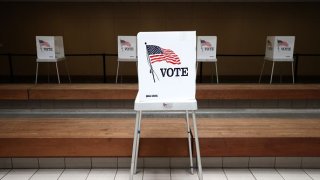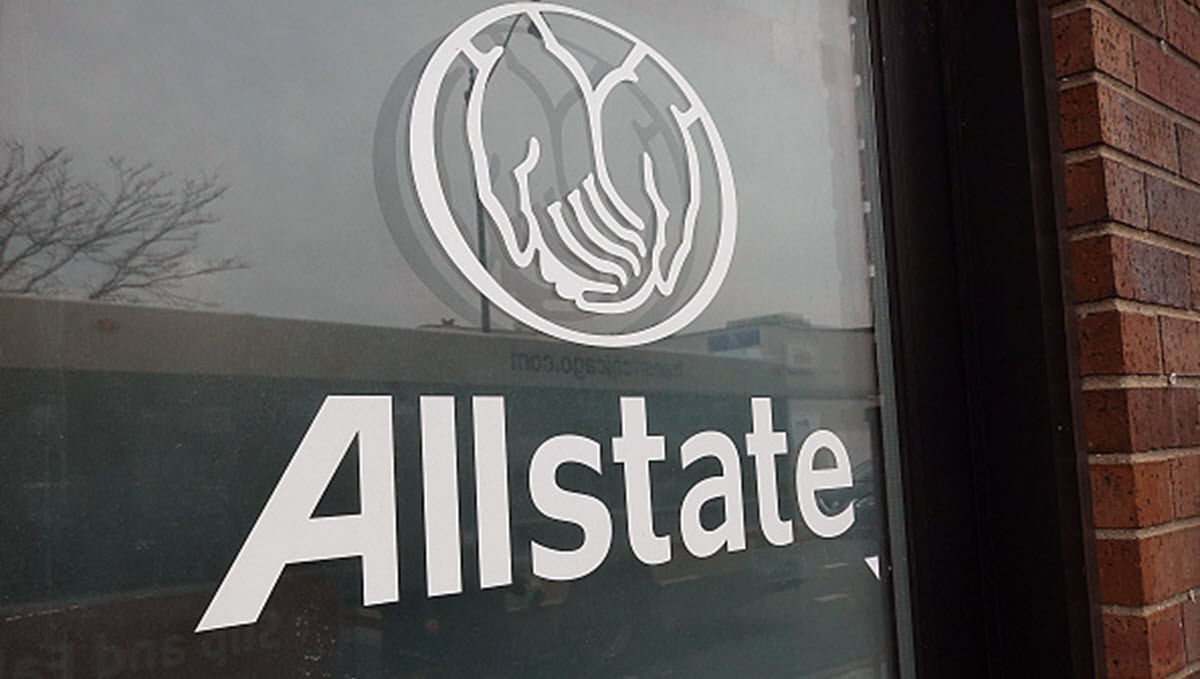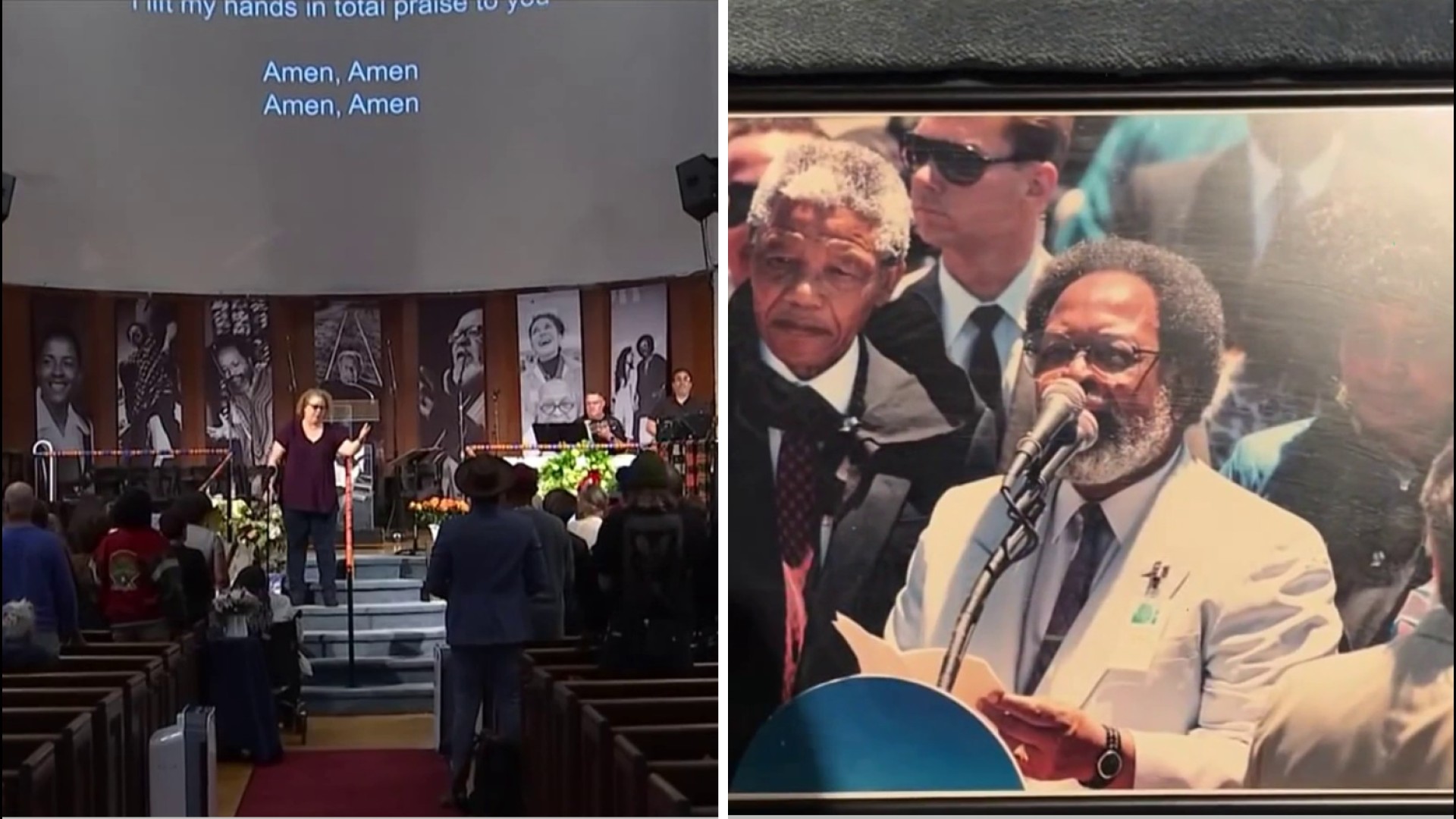
More Muslim Americans are running for political office in the Bay Area than ever before, with 17 candidates seeking election at the local, state and federal level.
That number represents a significant jump from the 2018 midterm elections when only one Muslim candidate ran in the Bay Area, according to data collected by the Islamic Scholarship Fund.
"This is the most candidates I have ever seen, and it is so exciting," said Sameena Usman, government relations consultant for the San Francisco Bay Area office of the Council on American-Islamic Relations (CAIR). "We are seeing so many more Muslims take an active role and be engaged, to have a seat at the table and not just be on the menu."
Local Muslim leaders say the reason for the increase can be expressed in three words: President Donald Trump.
Usman pointed to the president's anti-Muslim rhetoric and the Muslim travel ban that restricted immigration from eight countries as factors behind significant rises in Islamophobia and hate crimes -- and, subsequently, more Muslim civic engagement.
"This administration has passed so many damaging policies, and so it encouraged Muslims," Usman said. "The community recognized that decisions are going to be made about us whether or not we are involved, so they wanted to be at the forefront of shaping those decisions."
Sunnyvale City Council candidate Omar Din cited similar reasons for his decision to run.
Local
"Like a spring, the more something gets pushed down the greater it just bounces up," Din said. "I think the 2016 election, the Muslim [travel] ban and all the rhetoric that came with it kind of did that to our community, really galvanized it."
The 23-year-old is among the 17 Bay Area Muslim candidates. If he wins, he would be the first Muslim to serve on Sunnyvale's City Council.
Din said he has planned to run for office from the age of 16, but it was the U.S. Supreme Court's decision to uphold the Muslim travel ban that encouraged him to run directly after graduating from Cornell University.
"I believed deep down that the Supreme Court was going to reject it, that we have institutions in place to stop these outliers from occurring," Din said. "It really made me think, wow, these institutions are not as powerful or as strong as I had thought."
The young candidate's feelings are widely shared in the Bay Area Muslim community, Usman said, contributing to an increase in overall civic engagement.
In addition to more candidates running, Muslim voter registration has increased, more volunteers have signed up to do voter outreach and part-time canvassers hired at CAIR have nearly doubled in the Bay Area.
"We hired many different language speakers because we wanted to reach communities that were eager to get involved," Usman said. "I also saw, for the first time, Muslims actively attending town halls in a consistent and coordinated way."
Usman, who has been involved in Bay Area politics for decades, said she's never seen such eagerness for involvement by the Muslim community.
"In years past, I would have said foreign policy would be the main concern, but now it's civil rights, diversity, all the local safety issues like health and law enforcement," Usman said. "Muslims really began to realize that politics begins at the local level."
COVID-19 is also playing a significant part in engaging Muslim Americans, Usman said.
"The community realized that we need an administration and elected officials that are going to be taking this seriously, because it is an issue of life or death."
Mona Shaiq, founder of the Muslim Democrats and Friends Club of Alameda County, said she also sees an increase in local civil engagement.
"There are issues that we are facing as a community besides Islamophobia -- we feel that we should be recognized and honored in our societies," Shaiq said. "For example, our holidays are not accepted. There are big meetings on those days … We should be allowed to celebrate our religious holidays, our culture and everything."
Shaiq said she recognized the growing involvement when it occurred at a local level.
"We did classes, and you could see that the Muslim community felt empowered," Shaiq said. "And the elected officials started noticing us too. Now I get calls, emails, messages from candidates all the time, they want our endorsement, they want to meet with us and learn our issues."
Shaiq ran for the Fremont Unified School District Board in 2014 -- a time where "you would hardly hear about any Muslim running for office anywhere," she said.
"We have made a lot of progress since I ran, but I still feel that since 9/11, a lot of Muslims are laying low. They are afraid, they don't want to stir the pot," Shaiq said. "That [mentality], while understandable, is not helping them at all. The more people see us, the more people know us, the more acceptance there will be in society."
The reticence many Muslim Americans feel may be attributable to the persistence -- and revival -- of anti-Muslim sentiment. Since 2016, hate crimes against Muslims in the United States have increased 74 percent -- the most since after the Sept. 11, 2001, terrorist attacks on the Twin Towers in New York, according to CAIR.
But, increased civic engagement among Muslim Americans is also a nationwide trend.
The three states with the most Muslim candidates are California, with 20, New Jersey with 19, and Minnesota with 17.
In 2018, California had eight Muslim candidates, New Jersey had one and Minnesota had eight.
Nationally, there were 80 Muslim candidates running in 2018, and this year there are 103, according to the Islamic Scholarship Fund.
When asked what they would want non-Muslims to recognize about Muslim civic engagement, Usman, Din and Shaiq said the same thing: as a Muslim, any injustice toward anyone is an injustice toward all.
"All issues are our issues," Shaiq said. "Black Lives Matter is our issue, injustices are our issue, things in our criminal justice system are our issue. It doesn't matter if Muslims are not at the receiving end of these issues. We have to raise our voices against injustice no matter what."
EDITORS NOTE: This story was first published on CalNewsMatters.org, an affiliated nonprofit site supported by Bay City News Foundation. Find the original link with additional content and photos here.




